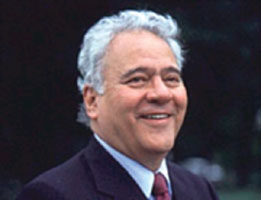International Politics
Brazilian E&P unfazed by election worries. Taking center stage in Brazil is the Oct. 6 presidential election between left-leaning Luiz Inacio Lula da Silva and President Fernando Cardoso’s anointed successor, Jose Serra. At press time, Lula da Silva had increased his poll lead over Serra, 39% to 19%. Concern over a leftist victory had created enough worry that Finance Minister Pedro Malan felt compelled to spend time in Europe and Asia speaking to investors. He tried to convince them that should Lula da Silva win, Brazil would neither reverse economic liberalization nor default on its debt. Election concerns, thus far, have not impacted the oil and gas sector. Given that the sector opened up to foreign companies in 1998, exploration projects are likely to continue, regardless of the election results. Petrobrás remains unperturbed. During July, the firm began a 58.6% take-over of Argentina’s Perez Companc. After the $1.13-billion transaction, the combined company would have sales of $23 billion, and add an extra 1 billion bbl to 10.6-billion-bbl reserves, plus a chain of Argentine service stations. Petrobrás would control Perez’ interests in Venezuela, Peru, Bolivia and Ecuador – as well as in Brazil – cementing Petrobrás’ international growth strategy. Long term, the transaction looks very beneficial. Short term, it causes concern about increased exposure to risky countries. In early September, Brazil’s National Petroleum Agency, ANP, said that it will allow operators to define block sizes for the 5th annual licensing round (see page 12). ANP is also contemplating half-yearly auctions. This month, ANP announces what blocks will be offered in the June 2003 round from these basins: Pelotas, Santos, Campos, Espirito Santo, Jequitinhonha, Reconcavo, Potiguar, Barreirinha and Foz do Amazonas. The government plans a November road show. During the 17th World Petroleum Congress in Rio de Janeiro, ANP also announced that exploratory program deadlines might be extended for tracts where heavy oil has been found. If extensions are approved, they would take effect in November or December. Chavez remains at core of Venezuela’s problems. Strong political disputes between Venezuelan President Hugo Chavez and the opposition continue to obscure state firm PDVSA and upstream activity. Moreover, many at PDVSA have refused to accept the president’s Hydrocarbon Law and have sought to create a wall between themselves and the government. Key for Venezuelan E&P will be if PDVSA can have this law repealed, since it has greatly reduced foreign interest in the oil sector. PDVSA is concerned, because the main oil fields are aging, and significant investment is needed to stem production declines. PDVSA officials, as well as executives in other economic sectors that oppose Chavez, see dire economic consequences resulting from last spring’s failed coup and ongoing political disputes. Economists recently announced that the Venezuelan economy shrank nearly 10% in second-quarter 2002. Political disputes have become so severe, that international mediation has become necessary. In July, former U.S. president Jimmy Carter, head of the Carter Center, led a delegation to the country, to discuss methods of resolving the political crisis. Yet, the opposition refused to speak with Chavez. A revitalized debate between petroleum and government officials concerning PDVSA’s partial privatization has further intensified political feuding. Given that Venezuela’s constitution would have to be changed, any near-future privatization is unlikely.
Bolivian gas route unresolved. In August, Bolivia’s government announced that it was delaying, until the end of this year, a decision on the routing of a multi-billion-dollar gas pipeline from the landlocked country to the Pacific coast. From there, gas would be shipped to California, where there is great demand for extra energy. A decision had been expected in August, when newly elected President Gonzalo Sanchez de Lozada took office. Mr. de Lozada is a free market reformist heading a relatively weak coalition government. Former President Jorge Quiroga had recommended that Chile be chosen for the pipeline route, but the new government labeled his report inadequate and insufficient. This final, controversial decision is part of a significant effort to ship LNG to the U.S. West Coast and Mexico. The decision-making process is being watched carefully by Pacific LNG, a consortium of BG Group Plc, Repsol YPF and Pan American Energy. The gas exports could yield $400 million annually for Bolivia. Peruvian reforms are slow to impact. To encourage foreign investment in Peru, President Alejandro Toledo last January signed two bills into law that encourage oil exploration. President Toledo hopes to encourage foreign investment in the oil sector by making investment terms more attractive, and by creating a better legal framework for investors. Thus far, however, Peru has been preoccupied with political scandals involving former president Alberto Fujimori. In August, Ecuadorian and Peruvian Indians lost their appeal to reinstate nine-year-old litigation against Texaco. In their original class-action lawsuits, they alleged that toxic dumping devastated the environment and exposed residents to carcinogenic pollutants. The U.S. Second Circuit Court of Appeals affirmed a trial court’s ruling that dismissed the two lawsuits. Dismissal was on grounds that the U.S. was not the proper place for litigation, given that the plaintiffs live outside the U.S., and their medical records are in their home countries. Correction. In our August South American section, we referred to a report from the World Bank about a negative environmental assessment of Peru’s Camisea project. However, the report was not from the World Bank. Rather, it was from the former director of the World Wildlife Fund – Bolivia. We regret the error. Mayra Rodríguez Valladares is president of MRV Associates Inc., a New York-based consulting company specializing in energy, telecommunications and the Internet. She is a regular contributor to this column. |




